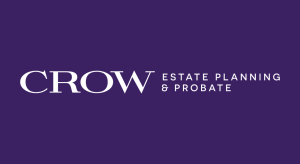
Clarksville is booming. Small businesses are popping up every day. But because these are small businesses, sometimes families commingle business assets with personal assets and vice versa. Maybe you need a new printer for the office and are in Wal-Mart purchasing groceries and other items for your home. You don’t want to make another trip, so go ahead and use your personal debit card to purchase the printer, too. Or, maybe you had a couple of emergencies this month and need a little extra cash to pay the doctor, the dentist, or another outstanding bill and use your business checking account to make the payment.
It all seems so harmless and easy, but commingling funds is a problem. Commingling funds can negatively impact your accounting, but worse: it can cause your company to lose its liability protection.
In this article, we explain why you shouldn’t commingle your personal and family business assets in Tennessee and elsewhere.
How are business & personal assets most often commingled in Tennessee?
Family businesses and personal assets are commingled in much the same way – whether it’s in Tennessee or elsewhere. The most common ways include:
- depositing a check made payable to your business into your personal checking account or vice versa;
- using the same bank account for personal and business expenses;
- using a personal credit card for business expenses and vice versa;
- withdrawing money from a business account for personal needs and vice versa; and
- moving money back and forth between personal and business accounts.
Why shouldn’t you commingle business & personal assets?
Many small businesses in Clarksville, are either a limited liability company (LLC), a limited partnership, or a corporation. One of the reasons families set up their business as an LLC or corporation is because of the liability protections these entity structures provide. In other words, your personal assets are protected when your business acquires debt or is sued.
That protection can evaporate when you commingle funds because commingling can encourage a creditor to pierce the “corporate veil,” thereby putting your liability protection into question. Piercing the corporate veil means that your personal liability shield can be “pierced” and your personal assets are then exposed to creditor claims. The very purpose of having an LLC or corporation is for liability protection. This liability protection is lost if the creditor can pierce the corporate veil. If you are then sued, don’t be surprised when the petitioner goes after your personal assets.
But the problems do not stop there. Commingling funds can also impact:
- accuracy of accounting;
- accuracy of taxes;
- a full understanding of profits and debts; and
- a full understanding of your business’s performance so that informed decisions can be made to scale the company appropriately.
As you can see, not clearly separating personal and business assets can have a detrimental downward cyclical impact on the overall health of your business.
Many people commingle business assets when business is moving slow. This seemingly inconspicuous maneuver can rapidly create problems. What if the company continues to decline in profitability and you do not plan accordingly for this downturn? Maybe you use your personal checking account to give the business a “boost.” But what if profits continue to decline and creditors begin calling? By then, it may be too late. If sued, rest assured that many creditors will seek to pierce the corporate veil and come after your personal assets if the business lacks the funds.
What actions can you take to stop commingling business & personal funds today?
Taking immediate steps now to stop commingling personal and business assets is important. Simple actions can be taken, like:
- keeping separate bank accounts
- keeping separate credit cards
- keeping business records clean
- tracking all business expenses and income.
Making these effort will go a long way to securing your business and preserving your personal assets for you and your family in Tennessee.
